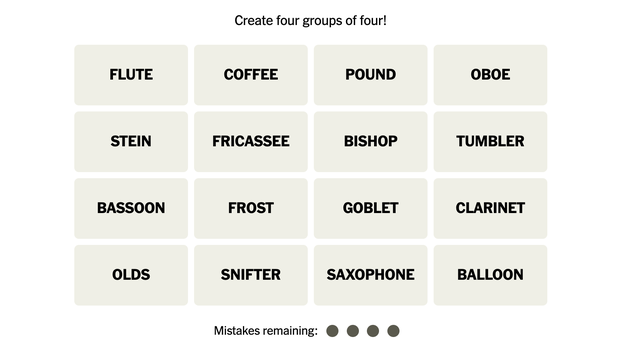Earlier this month, the Linux Foundation launched a free course on the online learning platform edX. The organization has designed the course for computer science students, electrical and computer engineers, as well as professionals interested in gaining knowledge about RISC-V. The program provides participants with practical exposure to RISC-V computer architecture, guiding them in creating […]
Source: LXer – LinuxFoundation Offers Computer Architecture Course w/ Industrial RISC-V Core
Monthly Archives: August 2023
US Officials Look To Move Marijuana To Lower-Risk Drug Category
The U.S. Department of Health and Human Services (HHS) has recommended easing restrictions on marijuana, a department spokesperson said on Wednesday, following a review request from the Biden Administration last year. Reuters reports: The scheduling recommendation for marijuana was provided to the Drug Enforcement Agency (DEA) on Tuesday as part of President Biden’s directive to HHS, the spokesperson said. “As part of this process, HHS conducted a scientific and medical evaluation for consideration by DEA. DEA has the final authority to schedule or reschedule a drug under the Controlled Substances Act. DEA will now initiate its review,” a DEA spokesperson said.
Marijuana is currently classified as a schedule I drug under the Controlled Substances Act, meaning it has a high potential for abuse and no accepted medical use, along with drugs like heroin and LSD. HHS is recommending reclassifying marijuana to say it has a moderate to low potential for dependence and a lower abuse potential, which would put it in a class with ketamine and testosterone. “If marijuana classification were to ease at the federal level, that could allow major stock exchanges to list businesses that are in the cannabis trade, and potentially allow foreign companies to begin selling their products in the United States,” notes Reuters.
While marijuana remains illegal on the federal level, nearly 40 U.S. states have legalized it in some form. According to a survey last year from the Pew Research Center, “an overwhelming share of U.S. adults (88%) say either that marijuana should be legal for medical and recreational use by adults (59%) or that it should be legal for medical use only (30%).”
Read more of this story at Slashdot.
Source: Slashdot – US Officials Look To Move Marijuana To Lower-Risk Drug Category
Supercharge Grammar Checking in LibreOffice With LanguageTool
The open-source LanguageTool can be integrated with LibreOffice Writer to provide a better grammatically accurate writing experience.
The post Supercharge Grammar Checking in LibreOffice With LanguageTool appeared first on Linux Today.
Source: Linux Today – Supercharge Grammar Checking in LibreOffice With LanguageTool
Saints Row Developer Volition Has Been Shut Down
After 30 years of operations, the developer behind 2001’s Red Faction and Saints Row, Volition, is being shut down. Its parent company Embracer broke the news on LinkedIn, attributing the decision to a “restructuring program.” Game Developer reports: Founded in June 1993 by Mike Kulas and Matt Toschlog, Volition was originally known as Parallax Software. Its debut title was 1995’s Descent, which was followed by a sequel the following year. Starting with 1998’s Descent: Freespace — The Great War, the studio would go by its current name.
Volition’s “big break” game came in the form of 2001’s Red Faction. That game spawned multiple sequels (ending with 2011’s Red Faction: Armageddon) and a movie spinoff. Its other big franchise, Saints Row, began in 2006 and enjoyed the longer tenure: with several sequels, a soft reboot (2017’s Agents of Mayhem), and 2022’s full-on reboot, simply titled Saints Row. Other titles developed by the studio include 2002’s Summoner 2 and The Punisher from 2004.
During the 2010s, Volition was a key developer from THQ that survived the transition over to Deep Silver. That company later rebranded to Plaion (formerly Koch Media) and itself had a “small restructure” as of 2022. Saints Row 2022, the final game from Volition, will be available on PlayStation Plus’ Extra tier starting September 6.
Read more of this story at Slashdot.
Source: Slashdot – Saints Row Developer Volition Has Been Shut Down
Today's Connections Hints (and Answer) for Friday, September 1

If you’re looking for the Connections answer for Friday, September 1, 2023, read on—I’ll share some clues, tips, and strategies, and finally the solutions to all four categories. Beware, there are spoilers below for September 1, NYT Connections #82! Scroll to the end if you want some hints (and then the answer) to…
Source: LifeHacker – Today’s Connections Hints (and Answer) for Friday, September 1
How to Install Terraform on Ubuntu Server 22.04
Terraform is an open-source infrastructure automation tool that allows you to deploy and manage hundreds of servers via a command-line interface. This tutorial will explain how to install Terraform on Ubuntu 22.04.
Source: LXer – How to Install Terraform on Ubuntu Server 22.04
Apple Experimenting With 3D Printing To Create Devices
According to Bloombeg’s Mark Gurman (paywalled), Apple is experimenting with a new 3D-printing manufacturing process for some device production, starting with the upcoming Apple Watch Series 9 models. MacRumors reports: The new manufacturing process that Apple is testing would use less material than the large slabs of metal that are needed for traditional CNC manufacturing, plus it would cut down on the time that it takes to make new devices. With a technique called “binder jetting,” Apple is able to print a device’s outline at close to its actual shape using a powdered substance. A second process uses heat and pressure to squeeze the material into a substance that feels like steel, and it is then refined with milling.
Gurman’s information echoes what we’ve already heard from Apple analyst Ming-Chi Kuo. Back in July, Kuo said that the upcoming second-generation Apple Watch Ultra will include 3D printed mechanical parts. Specifically, he claimed that Apple is “actively adopting 3D printing technology,” and that some of the titanium components in the new Apple Watch Ultra would be 3D printed. Gurman claims that Apple plans to use this new 3D printing method for the chassis of the stainless steel Apple Watch Series 9 models rather than components for the Ultra but either way, it sounds like Apple is more actively testing this manufacturing method as of 2023. Gurman says that Apple plans to 3D print titanium devices in 2024. The report notes that the shift to 3D printing would also “allow Apple to improve manufacturing times and potentially cut down on costs.”
Read more of this story at Slashdot.
Source: Slashdot – Apple Experimenting With 3D Printing To Create Devices
India’s accomplishments in space are getting more impressive
Enlarge / A view of India’s Vikram lander taken Wednesday from the Pragyan rover. (credit: ISRO)
It’s been more than a week since India’s Chandrayaan 3 mission landed on the Moon, and it’s a good time to assess where the world’s most populous nation stands relative to other global other space powers.
The successful arrival of the Chandrayaan 3 mission’s Vikram lander on the Moon made India the first country besides China to achieve a soft landing on the lunar surface since 1976, following a series of failed landings by private organizations and India itself four years ago. And it made India just the fourth nation overall to achieve this feat.
Since the landing of Chandrayaan 3 on August 23, India has released some early findings from the lander and its mobile rover, named Pragyan, along with photos of the vehicles exploring the Moon’s alien charcoal-color landscape.
Read 42 remaining paragraphs | Comments
Source: Ars Technica – India’s accomplishments in space are getting more impressive
NYPD will use drones to monitor private parties over Labor Day weekend
The New York Police department has been using drones in a limited capacity for years — deploying unmanned aircraft systems for search and rescue missions, to document crime scenes, or to monitor large public events like New Years Eve in Times Square. Soon, you might see one in your backyard as well: NYPD officials have announced plans to use drones to follow up on noise complaints during the long Labor Day weekend.
“If a caller states there is a large crowd, a large party in a backyard, we’re going to be utilizing our assets to go up and check on the party,” Assistant NYPD Commissioner Kaz Daughtry said during a press conference Thursday. Privacy advocates have been quick to respond, with a representative from the New York Civil Liberties Union telling the Associated Press that the announcement “flies in the face of the POST Act” that requires police to publish its use policies for surveillance technology.
And indeed, the plan could represent a stark departure from those policies. When the Department first announced its new drone program, it promised that the technology wouldn’t be used for “warrantless surveillance.” That pledge is reflected in the NYPD’s POST Act Unmanned Aircraft Systems: Impact and Use Policy, which specifically states that (absent exigent circumstances), drones are not to be used “in areas where there is a reasonable expectation of privacy without NYPD personnel first obtaining a search warrant that explicitly authorizes the use of UAS.”
It’s unclear if the department plans to obtain a warrant for noise complaints at private events over Labor Day weekend, or if such a complaint falls under “exigent circumstances.” Even so, the NYPD has been increasing drone use in recent years, and has deployed unmanned aerial systems 124 times in 2023.
This article originally appeared on Engadget at https://www.engadget.com/nypd-will-use-drones-to-monitor-private-parties-over-labor-day-weekend-001909102.html?src=rss
Source: Engadget – NYPD will use drones to monitor private parties over Labor Day weekend
Right to repair’s unlikely new adversary: Scientologists

The right-to-repair movement has had its share of adversaries. From Big Tech to politicians and individuals who don’t think product repairability should be government-mandated, it’s been a tedious battle for a movement that has seen major wins lately. One of the most recent wins came from Apple, a former DIY repair combatant, supporting repairability legislation. But taking Apple’s place is a new entity looking to limit right-to-repair legislation: Scientologists.
Today, 404 Media reported on a letter sent on August 10 to the US Copyright Office by Ryland Hawkins of Author Services Inc. The company, its website and letterhead say, represents the “literary, theatrical, and musical works of L. Ron Hubbard, the late founder of Scientology. Author Services, according to records archived via the WayBackMachine, is owned by the Chuch of Spiritual Technology, which describes itself as a church within Scientology.
The letter addresses Section 1201 of the Digital Millennium Copyright Act (DMCA), which “makes it unlawful to circumvent technological measures used to prevent unauthorized access to copyrighted works.” The Scientology group’s letter seeks to alter exemptions granted for self-repairing some consumer electronics, like video game consoles, laptops, home appliances, and farming tractors.
Read 14 remaining paragraphs | Comments
Source: Ars Technica – Right to repair’s unlikely new adversary: Scientologists
Magic Leap AR Headset Will 'Cease To Function' In 2025
An anonymous reader quotes a report from UploadVR: Magic Leap 1 AR headsets will ‘cease to function’ from December 31, 2024, the company announced. Magic Leap 1 launched in mid 2018 as the first transparent AR headset marketed and sold to consumers. The headset is powered by a tethered waist-mounted compute pack and came with a single tracked controller, though it got hand tracking support too. Content for the device included avatar chat, a floating web browser, a Wayfair app for seeing how furniture might look in your room, two games made by Insomniac Games, and a Spotify background app.
But Magic Leap 1’s eye-watering $2300 price and the limitations of transparent optics (even today) meant it reportedly fell significantly short of sales expectations. Transparent AR currently provides a much smaller field of view than the opaque display systems of VR-style headsets, despite costing significantly more. And Magic Leap 1’s form factor wasn’t suitable for outdoor use, so it didn’t provide the out-of-home functionality AR glasses promise to one day like on-foot navigation, translation, and contextual information. The Information reported that Magic Leap’s founder, the CEO at the time, originally expected it to sell over one million units in the first year. In reality it reportedly sold just 6000 units in the first six months.
Read more of this story at Slashdot.
Source: Slashdot – Magic Leap AR Headset Will ‘Cease To Function’ In 2025
How to Install Universal Media Server on Debian-Based Distros
In this guide, we demonstrate how to install Universal Media Server on Debian-based distributions using Ubuntu 22.04 as an example.
The post How to Install Universal Media Server on Debian-Based Distros appeared first on Linux Today.
Source: Linux Today – How to Install Universal Media Server on Debian-Based Distros
AI Quadcopter 'Swift' Beats Top Human Drone Racers
An autonomous, artificial-intelligence-powered drone called Swift has beaten humanity’s best drone racers. “The AI-equipped drone, developed by researchers at the University of Zurich, came out on top in 15 out of 25 races and recorded the single fastest lap time,” reports Gizmodo. The findings have been published in the journal Nature. From the report: Swift beat the humans in the niche but growing sport of first-person view drone racing. Human competitors navigate using a headset connected to a camera on their drones to pilot a quadcopter through complex obstacle courses at extreme speeds, with the goal of finishing the race with the fastest time and avoiding taking too much damage in the process. Drones in these races can top 50 miles per hour when they’re really buzzing. The shows Swift battling it out against the human-controlled drones.
Swift emerged victorious in 15 out of the 25 total head-to-head races against the human pilots and clocked the fastest overall lap time at 17.47 seconds. That brisk lap time was nearly half a second better than the best human. The three human competitors, Alex Vanover, Thomas Bitmatta, and Marvin Schaepper, have each won drone racing championships in the past. In this case, the human competitors had a week to learn the new course and train for the race. During that same time, Swift was training as well but in a digitally simulated environment meant to resemble the course. Swift, according to the paper, used deep reinforcement learning while in the simulation along with additional data collected from the outside world.
During the actual race, Swift would take in video collected by its camera and send that to a neural network capable of identifying the gates it had to fly through. A combination of onboard sensors are then used to aid the drone with positioning, speed, and orientation. All of this happened autonomously, at extreme speeds. The researchers noticed some interesting differences in the ways Swift approached the course as opposed to its human competitors. The autonomous system, they noted, was more consistent across laps and appeared to take tighter turns. Those tight turns can add up and give a drone an edge in a race by repeatedly shaving off fractions of a second from lap times.
Read more of this story at Slashdot.
Source: Slashdot – AI Quadcopter ‘Swift’ Beats Top Human Drone Racers
Rocky Linux Confirmed to Remain 1:1 Fully Compatible with RHEL
In a statement about OpenELA, Rocky Linux confirmed its commitment to remaining a 1:1 fully compatible drop-in replacement to RHEL.
Source: LXer – Rocky Linux Confirmed to Remain 1:1 Fully Compatible with RHEL
Wireless Carriers Are Messing With Your Autopay Discount
According to a new report by The Wall Street Journal, mobile carriers including Verizon, AT&T and T-Mobile are all requiring customers to switch to a debit card or bank account withdrawal in order to receive an autopay discount on their plan. Verizon has included this requirement for years, but in the past few months the other two carriers have quietly added it too. The Verge reports: The new rule goes into effect for AT&T customers on October 2nd, and as a gesture of goodwill, the company will only reduce your discount if you continue to pay with a credit card. Those who register for autopay with a bank or debit card will receive $10 off; a credit card will only get you $5. T-Mobile’s change went into effect in July, also eliminating Apple Pay and Google Pay as methods eligible for the $5 discount. Oh, and technically, you can qualify for Verizon’s autopay discount with a credit card — it just has to be a Verizon Visa card.
AT&T and T-Mobile aren’t just making this a requirement for new customers — the change is being applied to all postpaid accounts. Even if you’ve been receiving the discount for years with a credit card, you’ll have to make the switch in order to keep your discount. And it adds up — the discounts are applied for each line on your plan, so if your whole family is on the same plan, it’s a significant amount of money.
Read more of this story at Slashdot.
Source: Slashdot – Wireless Carriers Are Messing With Your Autopay Discount
Taylor Swift Just Scared Away One of Horror’s Most Popular Franchises

Two things are really shaking up Hollywood these days: labor unions and Taylor Swift. Thursday morning Swift announced that she was entering the fall movie season by releasing a nearly three-hour film based on her blockbuster Eras Tour. The news sent mobs of fans to online ticket sites and fear down the spines of…
Source: Gizmodo – Taylor Swift Just Scared Away One of Horror’s Most Popular Franchises
An AI Moderator Is Coming With ‘Call of Duty: Modern Warfare 3’

When Call of Duty: Modern Warfare 3 comes out on Nov. 10, all players’ voice chats will be silently monitored by artificial intelligence. The AI-powered moderation technology, Toxmod, is designed to identify toxic speech in real time in multiplayer games to create a friendlier battlefield. But will the AI chat-nanny…
Source: LifeHacker – An AI Moderator Is Coming With ‘Call of Duty: Modern Warfare 3’
Miyamoto Was Like ‘That’s Not How Elephants Work’

The next mainline 2D Mario game, Super Mario Bros. Wonder, looks fantastic, shaking up the franchise’s formula with new powers, worlds, and enemies. In particular, one new power that turns Mario into an elephant became quite popular online. However, at first Mario’s creator Shigeru Miyamoto, wasn’t a fan of the odd…
Source: Kotaku – Miyamoto Was Like ‘That’s Not How Elephants Work’
A Closer Look at the RFI on Open-Source Software Security
The RFI signals that the best ideas for how the government can make the entire open-source ecosystem more healthy and secure are top of mind. Learn more here.
The post A Closer Look at the RFI on Open-Source Software Security appeared first on Linux Today.
Source: Linux Today – A Closer Look at the RFI on Open-Source Software Security
Texas Law Requiring Age Verification On Porn Sites Ruled Unconstitutional
An anonymous reader quotes a report from Ars Technica: The day before a Texas antiporn law that requires age verification to access adult websites was set to take effect, the state’s attorney general, Angela Colmenero, has been at least temporarily blocked from enforcing the law. US District Judge David Alan Ezra granted a preliminary injunction temporarily blocking enforcement after the Free Speech Coalition (FSC) joined adult performers and sites like Pornhub in a lawsuit opposing the law. Today, they convinced Ezra that Texas’ law violates the First Amendment and would have “a chilling effect on legally-protected speech,” FSC said in a press release.
“This is a huge and important victory against the rising tide of censorship online,” Alison Boden, FSC’s executive director, said. “From the beginning, we have argued that the Texas law, and those like it, are both dangerous and unconstitutional. We’re pleased that the court agreed with our view that [the law’s] true purpose is not to protect young people, but to prevent Texans from enjoying First Amendment protected expression. The state’s defense of the law was not based in science or technology, but ideology and politics.” Now, Texas will have to wait until this lawsuit is litigated to enforce the law. […] According to FSC, in addition to free speech concerns, the law needed to be blocked because it would have exposed consumers to “significant privacy risks” by forcing adult-website visitors to show digital IDs. A spokesperson for Pornhub’s parent company Aylo told Ars: “We are pleased with the court’s decision today, which reaffirms our position that the age verification law implemented in Texas is unconstitutional. We have publicly supported mandatory age verification of viewers of adult content for years, but any method of age verification must preserve user privacy and safety.”
“The only solution that makes the Internet safer, preserves user privacy, and stands to prevent children from accessing age-inappropriate content is performing age verification at the device level,” Aylo’s spokesperson said. “We are pleased that the court recognizes the severity of compelled speech and its presence in this law that Texas has implemented. We are proud to fight for our industry and the performers that use it to legally earn a living, and we are glad to see the court recognize that this law is unconstitutional and would have required adult entertainers to falsely imply that their content poses health risks.”
A similar age verification initiative in Australia was halted yesterday, citing concerns around privacy and security of the technology.
Read more of this story at Slashdot.
Source: Slashdot – Texas Law Requiring Age Verification On Porn Sites Ruled Unconstitutional
